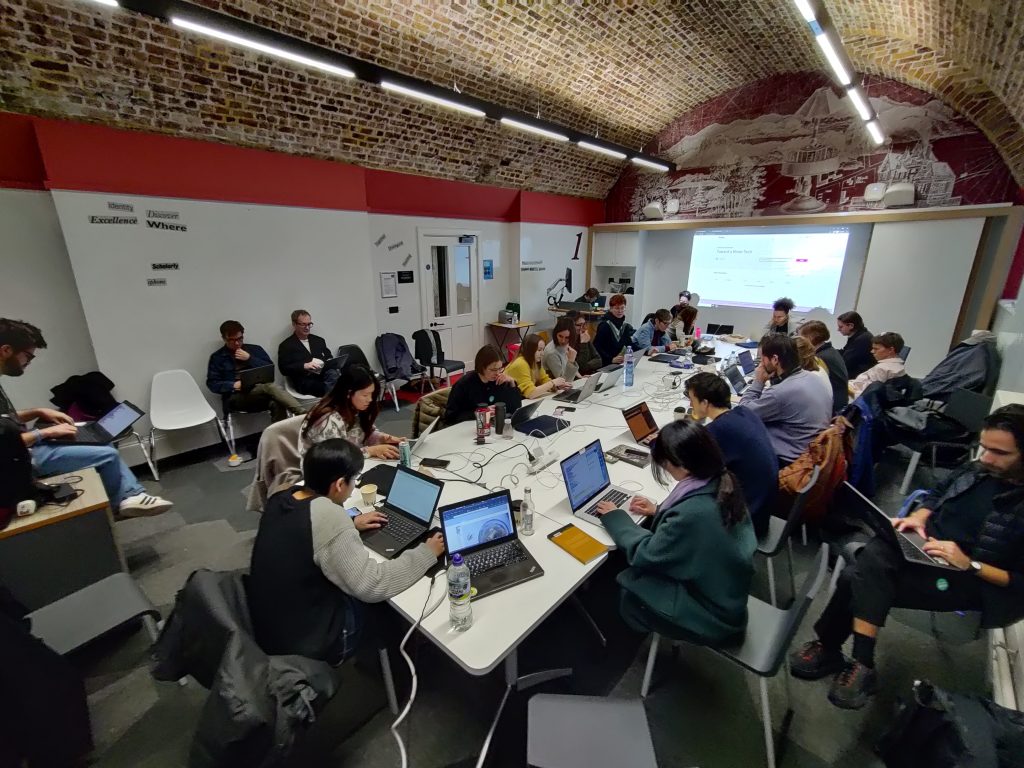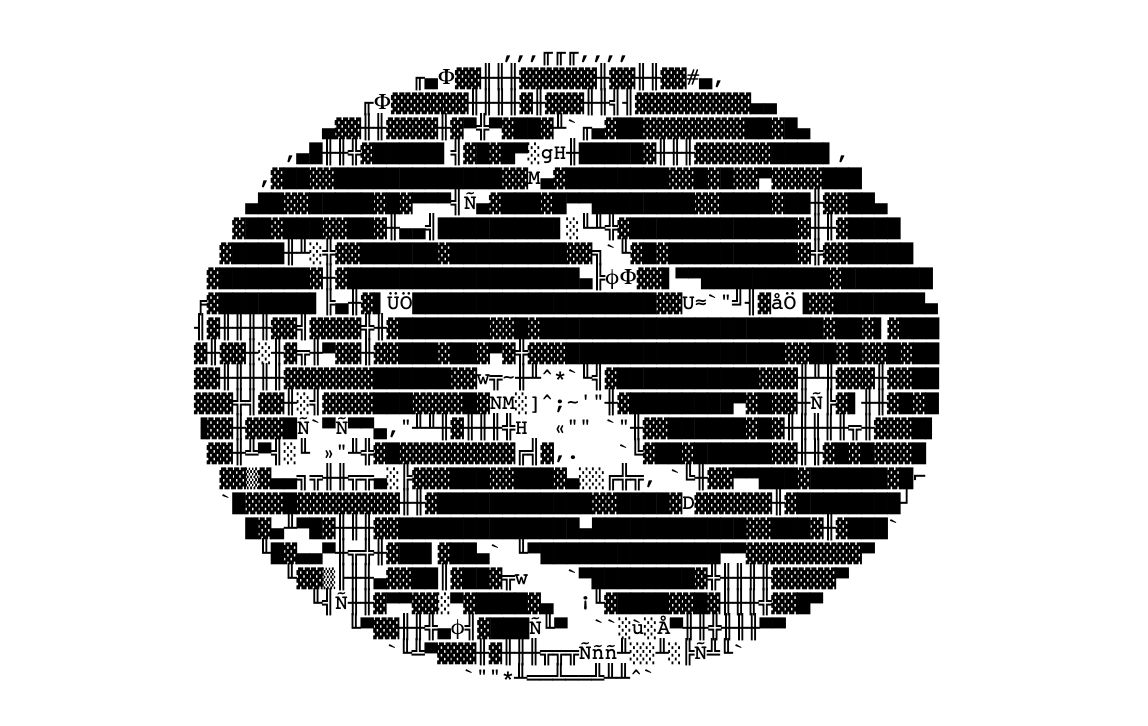As part of the Toward a Minor Tech workshop (18-20 Jan 2023), there will be public talks from Marloes de Valk on the damaged earth catalog and from Tung-Hui Hu on digital lethargy. Further details can be found here and copied below.
The workshop is organised by SHAPE Digital Citizenship & Digital Aesthetics Research Center, Aarhus University and Centre for the Study of the Networked Image, London South Bank University, in collaboration with King’s College London, and transmediale festival for digital art & culture, Berlin.

Toward a Minor Tech
The upcoming edition of transmediale explores “how technological scale sets conditions for relations, feelings, democratic processes, and infrastructures.”. This becomes apparent in the massification of images and texts, and the application of various scalar machine techniques that try to make these comprehensible for human and non-human readers. “There is a problem with scale”, as Anna Tsing puts it, in its connection to modernist master narratives that organise life on an increasingly globalised scale (the “bigness” of capitalism). Instead, she writes, we need to “notice” the small details and not assume that these need to be scaled up to be effective. In technical fields, there is a similar problem with scale, as Big Tech dominates, with ensuing environmental damage; big computing begets big data. In contrast, what we are referring to as minor tech, like small tech, operates at human scale (more peer to peer than server-client). “Small technology, smallnet and smolnet are associated with communities using alternative network infrastructures, delinking from the commercial Internet.” (Damaged Earth Catalogue)
In this workshop, we welcome proposals that in different ways question the universal ideals of technology and its problems of scale; including big data, machine learning, artificial intelligence, cloud computing, blockchain mining, and how they relate to the global organisation of labour, extractions of natural resources, exploitation, energy consumption, and more. Questions may, for instance, relate to how to negotiate the dynamics of scaling between big data and small technology, attentive to what Cathy Park Hong calls “minor feelings” (that derive from racial and economic discrimination in society)? As our technological systems scale up, what is their impact on affect and emotion? Can scale bring together new material and cultural assemblages between humans and nonhumans, ecology, and technological infrastructure and systems? How do the universals of technology relate to minor practices and collective action (for instance, trans-feminist or decolonial)?
Marloes de Valk – Damaged Earth Catalog: Technological Strategies and Critique for a Depleted World
18 January 2023, 18:00, at Borough Road Gallery, 103 Borough Road, London South Bank UniversityThe Damaged Earth Catalog describes small scale practices related to computing and network technology, that limit their own environmental impact. In the face of the climate crisis and the 6th extinction, a seemingly ever expanding tech industry devouring resources, producing more and more toxic e-waste, draining the energy grid with hyperscale datacenters, is triggering some to think through alternatives. I started gathering them in the Damaged Earth Catalog.
Each of the entries tries to give shape to a different role technology plays on a depleted planet; not as a solution but as part of the problem. Feminist Technology, Permacomputing, Collapse Informatics, Benign Computing, Liberatory Technology, Convivial Computing, Small Tech, Low Tech… They counter the idea that access to technology leads to god-like omnipotence; the tool is a means to communicate, express and share ideas, to organise collective action, in a way that is least harmful to the planet. Instead of replacing political action with lifestyle and shopping for tools, tech features as a reason and means for political action. Fully aware of the impossibility to ‘solve’ truly wicked problems such as the climate crisis with small scale interventions, these practices are a refusal of non-action.Marloes de Valk (NL) is a software artist and writer in the post-despair stage of coping with the threat of global warming and being spied on by the devices surrounding her. She is also a PhD researcher at the Centre for the Study of the Networked Image at London South Bank University, in collaboration with The Photographer’s Gallery, looking into the material and social impact of the networked image on the climate crisis, and a thesis supervisor at the master Experimental Publishing at Piet Zwart Institute in Rotterdam. More details at https://bleu255.com/~marloes/about/.
Tung-Hui Hu – Digital Lethargy (book launch)
19 January 2023, 18:00, at The Photographers’ Gallery
https://thephotographersgallery.org.uk/whats-on/talk-digital-lethargySometimes, interacting with digital platforms, we want to be passive—in those moments of dissociation when we scroll mindlessly rather than connecting with anyone, for example, or when our only response is a shrugging “lol.” Despite encouragement by these platforms to “be yourself,” we want to be anyone but ourselves. Tung-Hui Hu calls this state of exhaustion, disappointment, and listlessness digital lethargy.
Examining a series of artworks that dwell within the ordinariness and banality of digital life, including a group that invites lazy viewers to strap their Fitbits to a swinging metronome, faking fitness for their health insurance companies, Hu argues that lethargy may paradoxically hold the potential for social change. Lethargy, he writes, is a drag: it weighs down our ability to rush to solutions and forces us to talk about the unresolved present.Tung-Hui Hu is a poet and a scholar of digital media. He is the author of A Prehistory of the Cloud (MIT Press, 2015), on how the digital cloud grew out of older networks, such as railroad tracks, sewer lines, and television circuits. Currently an associate professor of English at the University of Michigan, and a 2022-23 Rome Prize Fellow in Literature at the American Academy in Rome, his new book is Digital Lethargy: Dispatches from an Age of Disconnection, from MIT Press (October 4, 2022).
Image credit: Damaged Earth Catalog

